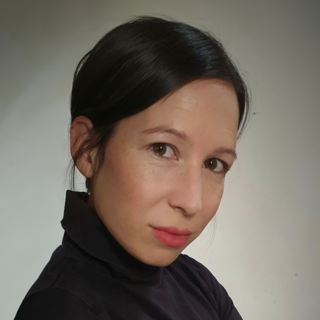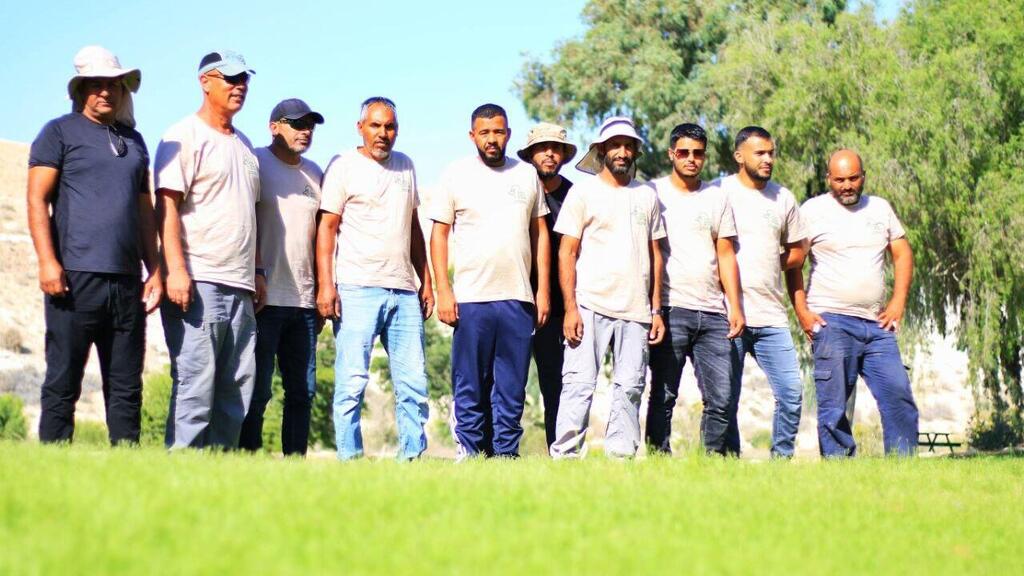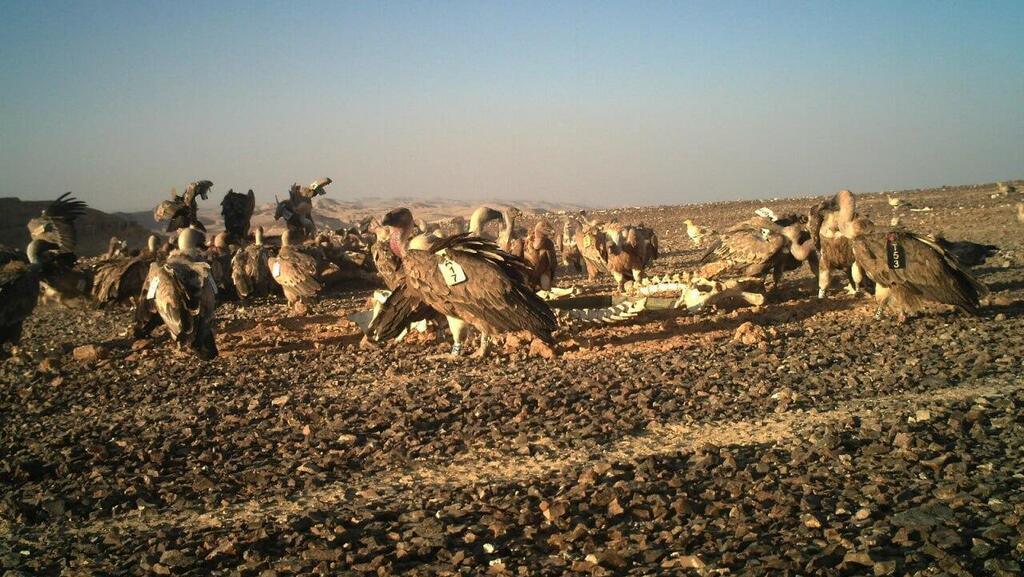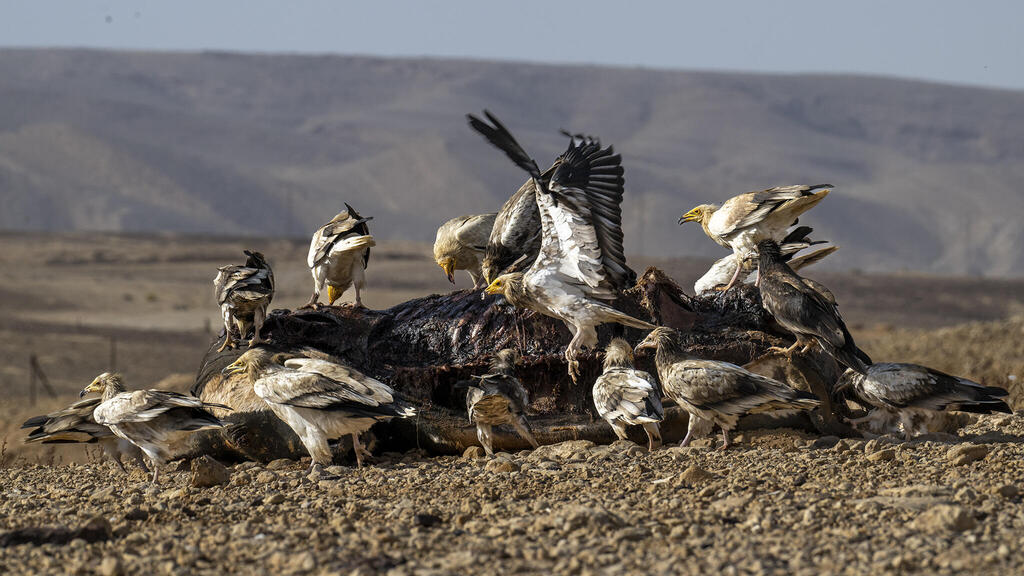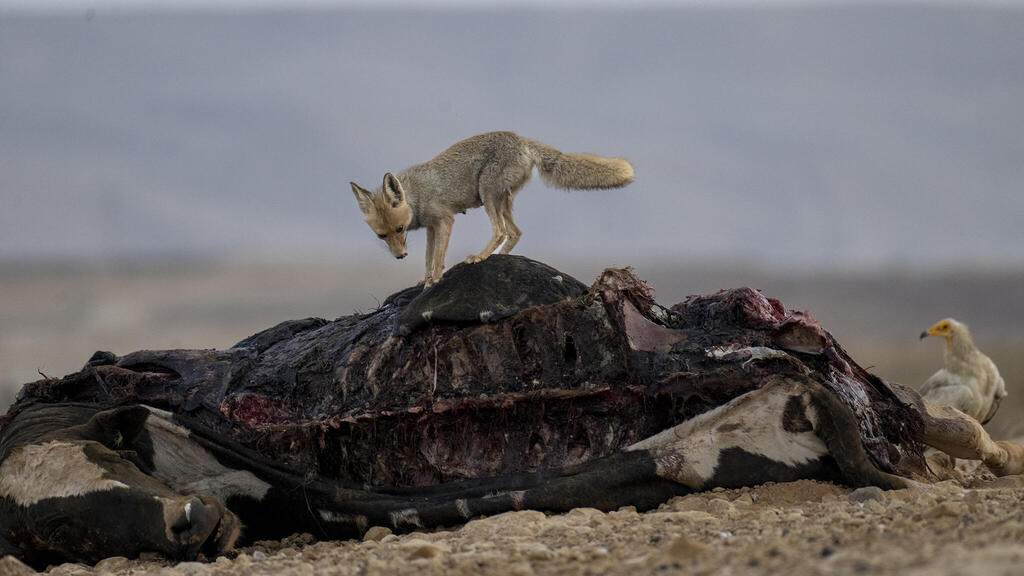Getting your Trinity Audio player ready...
The training of 19 volunteers from the Bedouin community in the Negev as part of a new "Birds of Prey Patrol" established by the Israel Nature and Parks Authority was concluded this week. The program aims to protect birds of prey and the volunteers will participate in joint efforts with the authority, enabling them to respond to incidents where a bird of prey is in danger.
The program was led by Aviv Ohayon, 56, a ranger expert in vultures and large birds in the Negev area. Ohayon, formerly a regional ranger in Holot Agur, is well-known among the Bedouin community due to his activities in the Negev.
"Aviv patrols all over the Negev, and we would always meet," said Salem Abu Asa, 42, from Bir Hadaj. "The vulture is endangered. We care about this animal; it's very significant to us. In the past, the Al-Azazmeh tribe’s symbol was the vulture. That means a lot to us. Aviv called us, and we decided to take this step with him."
Ohayon explained why the patrol was established. "Recruiting volunteers for the program stemmed from the need to protect birds of prey in general and vultures in particular, from consuming carcasses contaminated near Bedouin settlements and to combat the practice of dumping animal carcasses in open areas," he said. "These are contaminated with diseases and drugs in the carcass's body."
The fact that volunteers live near the open areas in the Negev is a tremendous advantage. "When we receive a report about a vulture landing in a location we know is dangerous, I get the alert in my system," Ohayon said. "It's crucial to rush to the spot and check why the vulture is there.
“It might have eaten a contaminated carcass or consumed a poisoned carcass. Vultures cover vast areas, so reaching them, especially when it's only me, takes time. The fact that there are now 19 more volunteers alongside me, locals who know the area, can really save a vulture's life."
Abu Asa added, "This animal cleans up carcasses in the field, and we're protecting it. The desert animal says a lot about us. We Bedouins are known as trackers. We believe that birds of prey have sharp eyes. When I see a bird of prey flying in the sky, I'll be happy all day.
“We don't want to lose this animal in the Negev or anywhere in Israel. They're part of our lives. There's no Bedouin in the world who doesn't care about nature. The root of the word 'Bedouin' is 'badiya,' which means desert. And we belong to nature here."
The Israel Nature and Parks Authority is also aiding with the removal of carcasses from Bedouin settlements, following the failure of regional councils to manage waste disposal on their own. Bedouin communities, even those in recognized villages, suffer from severe sanitation and waste management issues partly due to a lack of infrastructure and illegal construction.
Residents often dispose of animal carcasses and waste in open areas, which poses a danger to vultures. Vultures that come across carcasses treated with medication can be harmed as a result.
"Some people give sheep medicine, but it's like poison for vultures," Abu Asa explained. "The Bedouins dispose of carcasses in open areas out of ignorance, so we established a public awareness team. We have WhatsApp groups where we publish notices on the matter and hold patrols."
The authority has placed cages where residents can safely dispose of carcasses and it's responsible for their removal. "We're trying to centralize the carcasses in collection points," said Mohammed Elgadafi, 40, a resident of Bir Hadaj, a volunteer with the Israel Nature and Parks Authority and a medic with United Hatzalah.
"This way, we keep the environment clean of carcasses and diseases. We take this issue seriously. I believe the vultures can recover. It will happen If we work properly,” he added.
"Ultimately, it's clear to all of us that vultures and other birds of prey are crucial to the ecosystem and are heavily impacted by human damage to the environment," said Tal Carmi, a volunteer manager in the Israel Nature and Parks Authority’s Southern District.
"We know how important sanitation is to protect birds of prey specifically and wildlife in general. That's why it was important for us to recruit local communities and make them part of the solution. Our Bedouin volunteers exemplify this reality: we're all in the same boat. The future of the birds of prey is in all our hands. When the message comes from within the community itself, it resonates much more effectively than in any lesson I could give."


